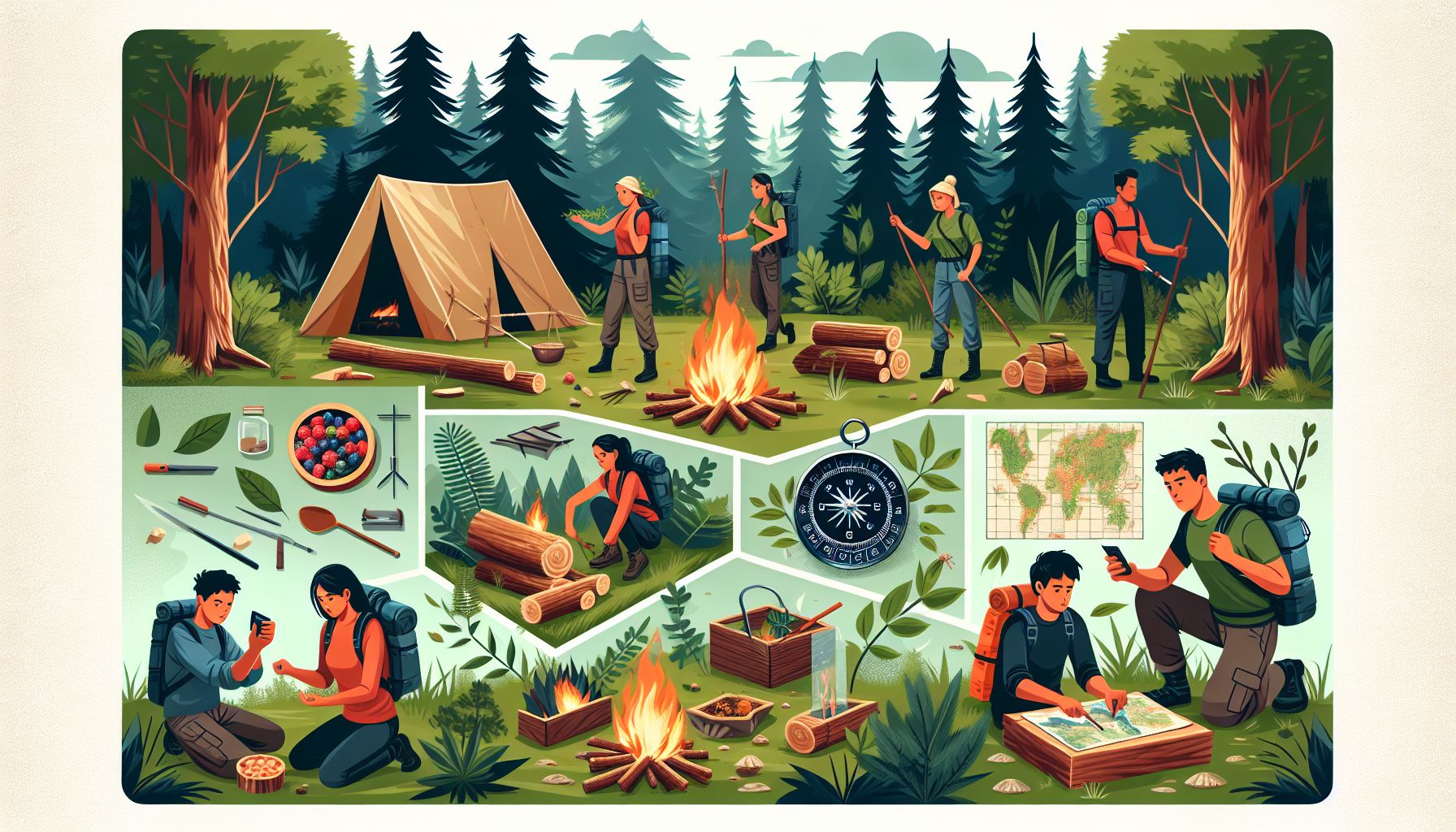Surviving in the Wilderness: Essential Tips for Outdoor Enthusiasts

When it comes to exploring the great outdoors, whether you are a seasoned outdoor enthusiast or a camper looking for adventure, it is essential to have a good understanding of outdoor survival skills. Knowing how to survive in the wilderness can make all the difference in the world. From finding food to shelter, these skills are critical for anyone planning to spend time in nature. In this article, we will discuss some essential tips and strategies for surviving in the wilderness.
Finding Shelter and Ensuring Safety
One of the first priorities in any survival situation is creating or finding shelter. Whether you are camping or lost in the wilderness, having a shelter will protect you from harsh weather conditions and predators. If you’re lucky, you may find a natural shelter like a cave or an overhanging rock, but in most cases, you will have to build one.
Knowing how to construct a shelter is vital. Look for an area with ample natural resources. Start by creating a sturdy framework with branches and logs, ensuring that it is thick and insulated enough to withstand the elements. Use leaves or grass to create a waterproof layer on top.
Additionally, it’s crucial to think about your safety. If possible, choose a sheltered spot away from potential dangers, such as animal dens or steep hillsides. Keep your shelter close to a water source, but not too close to avoid flooding risks. Also, make sure your shelter is visible from a distance and easily spotted by rescue teams.
Finding Food in the Wilderness
Hunting for wild animals may not be everyone’s cup of tea, but in a survival situation, it could be crucial. Learning to hunt or trap animals can provide you with protein-rich food, ensuring your survival in the wild. However, it is essential to research local regulations and possess the necessary skills and permits before attempting hunting or trapping activities.
For those who prefer a plant-based diet, learning about edible foods and wild plants is equally important. Familiarize yourself with native edible plants in the area you plan to explore. Many forests and wilderness areas are teeming with a variety of edible plants, such as wild berries, nuts, mushrooms, and roots. However, be cautious and educate yourself on proper identification techniques to avoid eating something poisonous.
The Art of Organic Food Production
For outdoor survivalists looking to take their self-sufficiency to the next level, learning about organic food production can be a game-changer. Growing food organically in the wilderness not only provides nutrition but also connects you to the land in a deeper sense.
Investigate methods for growing food in the wild, such as creating small gardening plots, using compost, and choosing hardy crops suited for the local climate. Additionally, consider learning about natural pest control methods, as harsh chemicals used in conventional agriculture won’t be readily available. Embrace the challenge of growing your own food in harmony with nature.
Edible Delights in the Forest
While knowing how to hunt or grow food in the wilderness is valuable, it’s also important to recognize the edible foods available directly in the forest. Nature often provides a bounty of delicious treats for those who know where to look.
Foraging for edible foods can be an exciting and rewarding experience. Forests are often home to an abundance of edible plants like dandelions, wild garlic, nettles, and cattails. Invest time in learning about the local ecosystem and its edible offerings—consult guidebooks or join local foraging groups to expand your knowledge.
Conclusion
Surviving in the wilderness requires more than just enthusiasm and gear. It necessitates a solid groundwork of survival skills and knowledge. Remember, finding or building shelter, ensuring safety, hunting or foraging for food, growing your own sustenance, and identifying wild edible foods are key skills for any outdoor enthusiast and camper.
As you embark on your outdoor adventures, make sure you seek out further education on outdoor survival skills. Equip yourself not just with gear, but with the knowledge and skills that will empower you to face any challenges that the wilderness may throw your way. With the right skills and mindset, you can enjoy the wonders of nature while staying safe, self-sufficient, and connected to your surroundings.